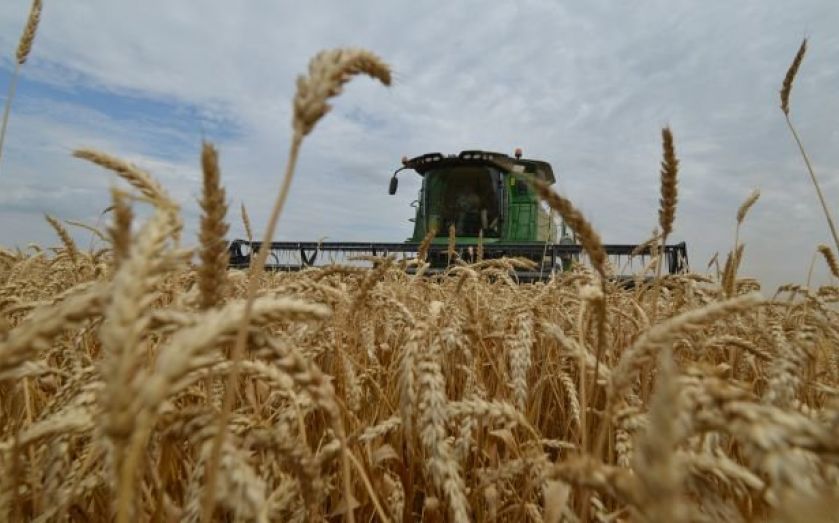| Updated:
Climate change increases risk of global food demand outstripping supply, study finds

Researchers at Stanford University have found that global warming will significantly increase the risk of a major slowdown in the production of wheat and corn over the next two decades.
By putting data about crops and weather into computerised climate models, they set out to estimate the chance that climate change would interfere with the ability of crop producers to keep up with demand.
They used simulations to compare what would happen to the world's crop-intensive regions as a result of varying levels of carbon dioxide emissions. They also looked at what would happen in a natural environment without human-induced global warming.
The results of the study, published in Environmental Research letters, show that the likelihood of natural climate shifts causing a significant slowdown over the next 20 years is only 1 in 200. But when human-induced global warming is taken into account, the odds go up to 1 in 10 for corn and 1 in 20 for wheat.
"Climate change has substantially increased the prospect that crop production will fail to keep up with rising demand in the next 20 years," said Claudia Tebaldi, co-author of the study.
Global yields of crops such as corn and wheat have typically increased by about one to two per cent per year in recent decades, and the UN Food and Agriculture Organization projects that global production of major crops will increase by 13 per cent per decade from now to 2030.
However, global demand for crops is also expected to rise rapidly during the next two decades because of population growth, greater per-capita food consumption, and increasing use of biofuels.
"We can't predict whether a major slowdown in crop growth will actually happen, and the odds are still fairly low," said Tebaldi. "But climate change has increased the odds to the point that organisations concerned with food security or global stability need to be aware of this risk."
The report suggests that such organisations should make plans in case a significant slowdown in crop production does occur.
It also warns that although the risk could be offset by planting wheat and corn in cooler regions, such planting shifts to date have not occurred quickly enough to offset warmer temperatures. The authors also found little evidence that other adaptation strategies, such as changes in crop varieties or growing practices, would totally offset the impact of warming temperatures.Based on the findings, the study suggests that organsations affected by international food availability and price should make plans in case a significant slowdown in crop production does occur.